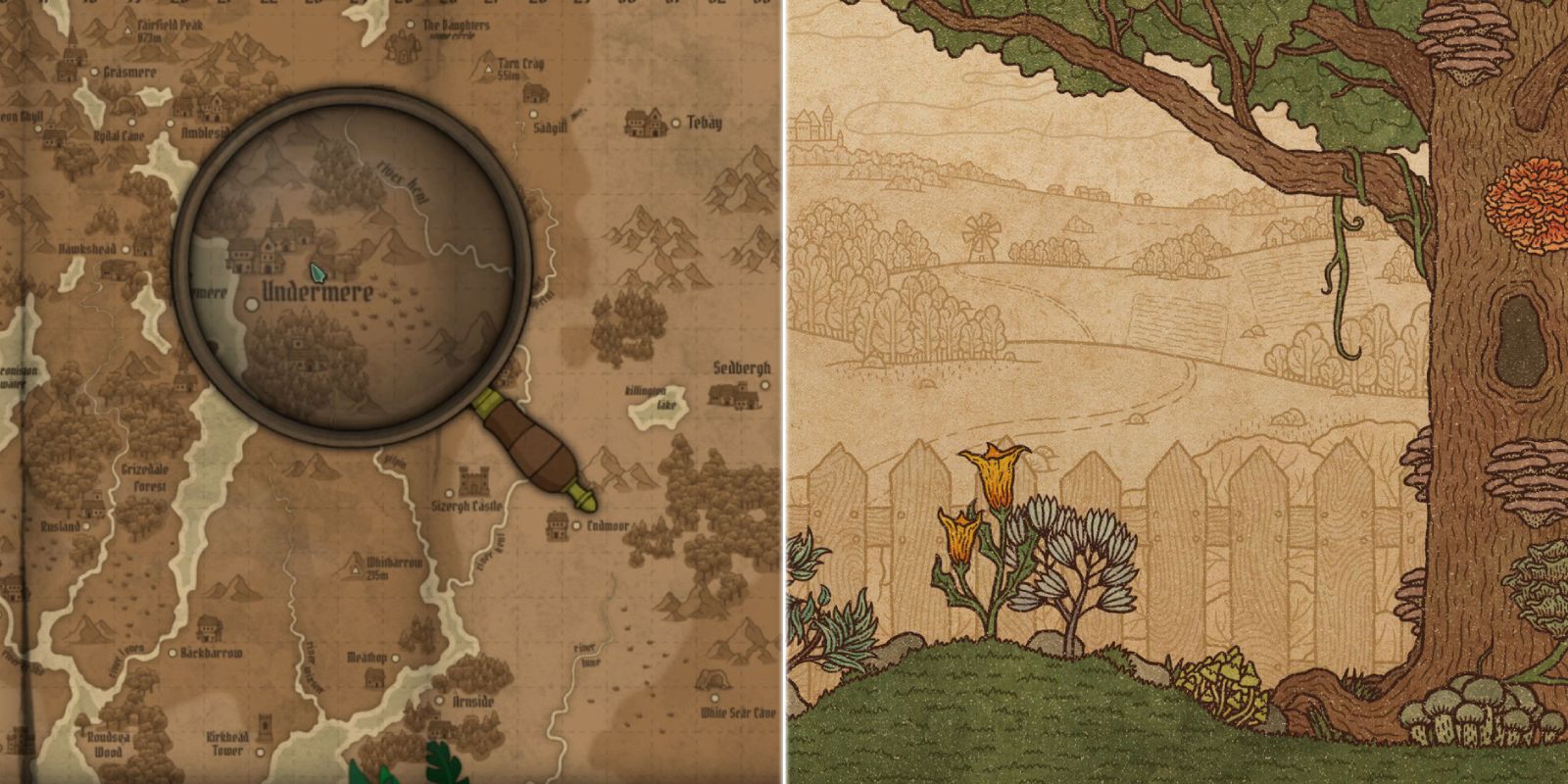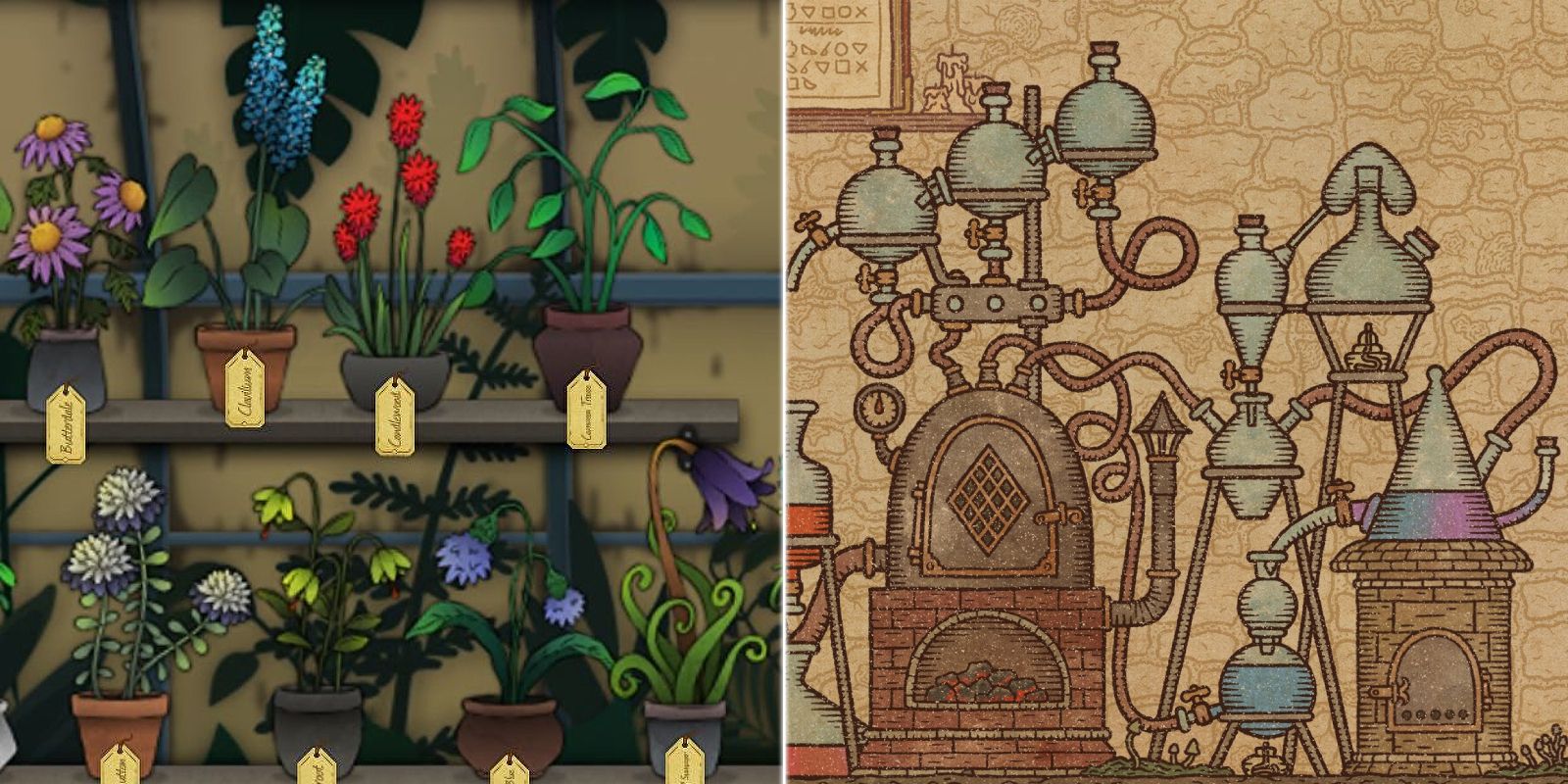Potion Craft & Strange Horticulture Are An Indie Game Alchemist's Dream

It can at times feel challenging to find a truly unique game that utilizes distinct mechanics to set itself apart, but Potion Craft: Alchemist Simulator is a worthy candidate to look at. Both Potion Craft and a similar indie game, Strange Horticulture, focus on puzzle-solving rather than traditional combat-based gameplay to allow players to explore the world, interact with NPCs, collect multitudes of exciting ingredients, and craft poisons and potions with different effects. Anyone looking for the chance to practice alchemy needs to look no further.
Potion Craft and Strange Horticulture are both available on Steam, with the latter having recently released on January 21. It's worth noting that Potion Craft is still one of Steam's many early access games and has been since its release in September of 2021, but it's still entirely playable and, according to its creators, contains dozens of hours worth of sandbox gameplay. Currently, neither one is available on any platform other than Windows, but time will tell whether the alchemy simulators are able to generate subsequent ports.
Despite the similarities of their overall premise, Strange Horticulture and Potion Craft each boast standout differences in terms of their visuals and style of play. Potion Craft's art style is inspired by medieval manuscripts and medical books, leaning into the player's role as an alchemist. In Potion Craft, players are responsible for selling their wares to the townsfolk and keeping the shop going. It's a much more open-ended experience, leaving room for roleplaying and experimentation. While also sporting 2D graphics, Strange Horticulture is slightly more modern in terms of both setting and appearance, and its overarching plot is more central to its loosely puzzle-like gameplay.

Strange Horticulture allows players to step into the shoes of a small-town horticulturist, running a plant store and interacting with a colorful cast of characters as customers drop by the shop with unusual requests. As the game progresses, more of the town's mysteries are uncovered, and players get the chance to explore the game's immersive open map to not only discover new plants but also encounter new narrative opportunities. The unique effects of each plant can influence the direction the story moves in, making Strange Horticulture's focus on alchemy (or at least the selling of and using ingredients used for alchemy) all the more critical to the player's progress. Paying close to the indie game's narration and plant identification system is essential to unravelling mysteries and moving the plot in new directions.
Potion Craft is less based around a centralized plotline and more of an open-ended sandbox experience. Players can either buy ingredients or grow their own, and from there, the game heavily emphasizes physical interaction with the protagonist's alchemy equipment by grinding, stirring, boiling, and even changing the shape and color of the bottle for each unique potion brewed in Potion Craft. Like Strange Horticulture, Potion Craft features a large cast of customers, each searching for something different. Relationships can be made or broken depending on what sort of solution players offer them, and that, plus the game's alchemy map for combining effects, makes it a nearly endlessly replayable experience.
Any frequent Steam users feeling burnt out by combat-focused games and particularly fans of crafting simulators will more than likely find it worthwhile to check out both Strange Horticulture and Potion Craft: Alchemist Simulator. Though both of these clever indie games utilize a different approach to story and mechanics, the end goal is the same and is sure to appeal to any aspiring alchemist looking to brew potions and keep shop.
from ScreenRant - Feed https://ift.tt/pGhHe1S
via Whole story

Post a Comment